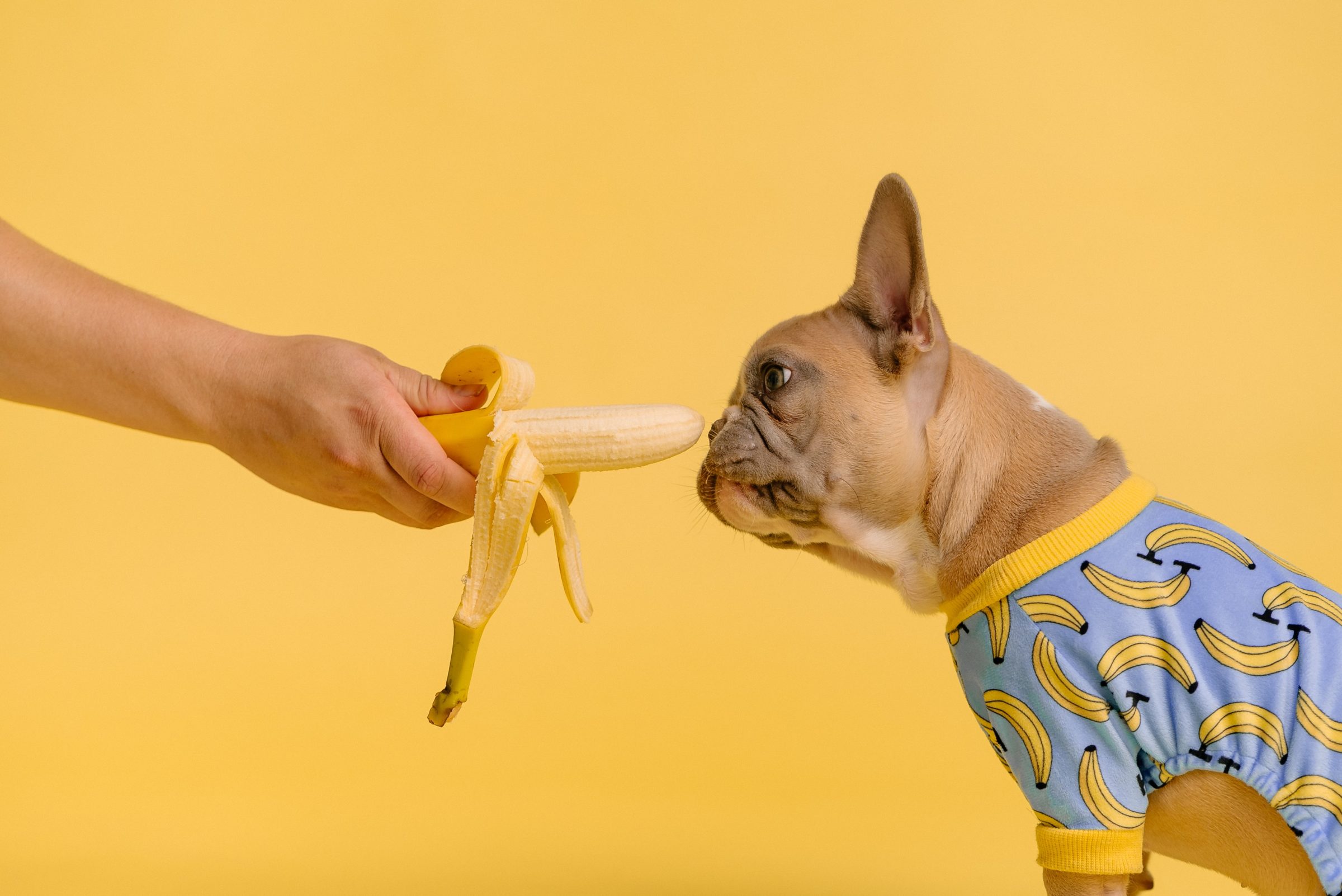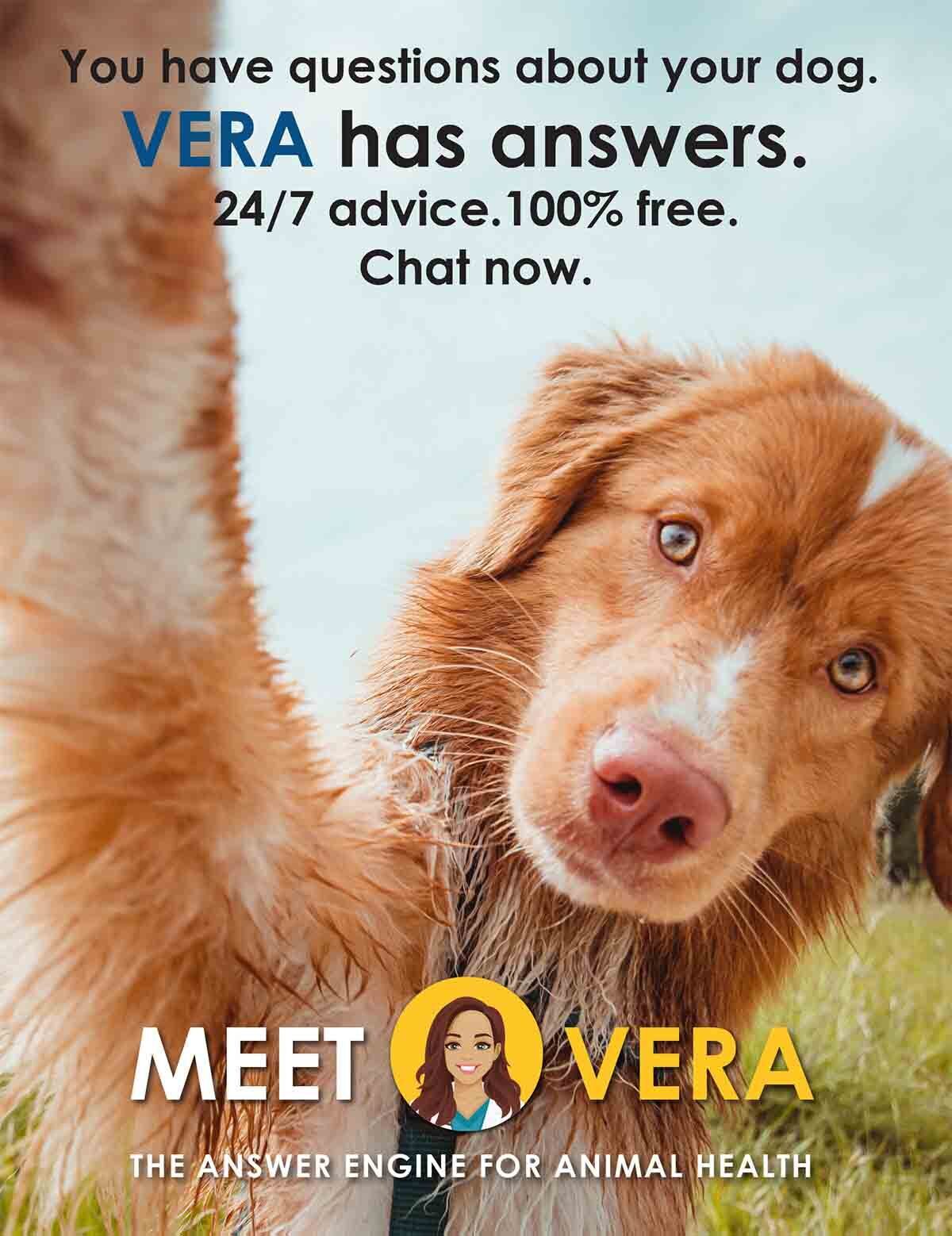Unfortunately, dogs do not have much discretion when it comes to putting things in their mouths! While some items in our kitchen and cabinets are safe for animals, there are many foods that can be harmful for dogs. If you are concerned your dog ate something potentially harmful or toxic, it is important to note the type of food, the time it was ingested (even if you have to estimate!), and the quantity eaten before reaching out to your veterinarian or the AskVet Care Squad.
With any potential toxin ingestion, there are two types of action your veterinarian can take. If the harmful food was ingested recently–usually within the first 30mins to few hours–your pet is still in the Decontamination Phase. This phase is the attempt to prevent any adverse symptoms or illness before they start. If a harmful food is ingested, it should be reported as soon as possible to allow preventative steps to be taken. The second phase is Treatment. This phase occurs after the toxic substances have been absorbed by your pet and they are showing signs of illness. Check out the list below for some of the more common concerns.
Common Harmful Foods for Dogs:
Chocolate/Coffee/Caffeine
Chocolate is probably the most well-known toxin for dogs. The potential for toxicity is based on the amount ingested, the type of chocolate, and weight of a pet. Symptoms can include vomiting, diarrhea, tremoring, irregular heartbeat, and even seizures or death. Keep your dog away from caffeinated beverages as they can also cause the same reaction as chocolate.
Grapes/Raisins
Grapes and raisins are harmful for dogs by causing an unknown reaction (idiosyncratic) within the body resulting in kidney failure. Symptoms can start within 12 hours and include vomiting, diarrhea, and lethargy. Because the toxic reaction is not specific, there is no known toxic amount. Any ingestion can cause a big issue for some dogs!
Onions/Garlic/Chives
This type of toxicity can take several days to develop and leads to symptoms of vomiting, diarrhea, and damage to the red blood cells. Garlic is more potent than onions, but any seasonings with these items should never be used on foods intended for dogs.
Sugar-free candy or gum containing Xylitol
Xylitol is an artificial sweetener found in some sugarless gums, candies, toothpaste, or vitamins. If ingested, dogs can experience an uncontrolled drop in blood sugar and liver damage. Symptoms include lethargy, loss of coordination, and seizures. Note that some brands of peanut butter have started including xylitol, so be sure to check the label before offering your dog a yummy treat!
Yeast Dough and Alcohol
Ethanol can be found in both products, resulting in symptoms similar to intoxication. These include restlessness, vomiting, disorientation, and tremors or seizures. Raw bread dough can also expand in the stomach causing damage to the lining of the stomach and difficulty breathing.
Some harmful foods for dogs that are not toxic, but still may require veterinary attention include bones, cinnamon, foods high in fat like bacon, or pits from fruit such as peaches or avocado.
Accidents can always happen. Your AskVet Care Squad is always here to help with your concerns and direct you to a licensed veterinarian if needed!





